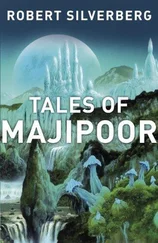Robert Silverberg - Born with the Dead
Здесь есть возможность читать онлайн «Robert Silverberg - Born with the Dead» весь текст электронной книги совершенно бесплатно (целиком полную версию без сокращений). В некоторых случаях можно слушать аудио, скачать через торрент в формате fb2 и присутствует краткое содержание. Год выпуска: 2009, ISBN: 2009, Издательство: Subterranean Press, Жанр: Фантастика и фэнтези, на английском языке. Описание произведения, (предисловие) а так же отзывы посетителей доступны на портале библиотеки ЛибКат.
- Название:Born with the Dead
- Автор:
- Издательство:Subterranean Press
- Жанр:
- Год:2009
- ISBN:978-1-59606-212-2
- Рейтинг книги:5 / 5. Голосов: 1
-
Избранное:Добавить в избранное
- Отзывы:
-
Ваша оценка:
- 100
- 1
- 2
- 3
- 4
- 5
Born with the Dead: краткое содержание, описание и аннотация
Предлагаем к чтению аннотацию, описание, краткое содержание или предисловие (зависит от того, что написал сам автор книги «Born with the Dead»). Если вы не нашли необходимую информацию о книге — напишите в комментариях, мы постараемся отыскать её.
Born with the Dead — читать онлайн бесплатно полную книгу (весь текст) целиком
Ниже представлен текст книги, разбитый по страницам. Система сохранения места последней прочитанной страницы, позволяет с удобством читать онлайн бесплатно книгу «Born with the Dead», без необходимости каждый раз заново искать на чём Вы остановились. Поставьте закладку, и сможете в любой момент перейти на страницу, на которой закончили чтение.
Интервал:
Закладка:
“It’s unthinkable,” Klein said.
“Unacceptable, maybe. But not unthinkable. Nothing’s unthinkable once somebody’s thought it. You think it some more. Will you promise me that? Think about it before you get aboard that plane for Zanzibar. I’ll be staying here tonight and tomorrow, and then I’m going out to Arusha to meet some deads coming in for the hunting, and any time before then I’ll do it for you if you say the word. Think about it. Will you think about it? Promise me that you’ll think about it.”
“I’ll think about it,” Klein said.
“Good. Good. Thank you. Now let’s have lunch and change the subject. Do you like eating here?”
“One thing puzzles me. Why does this place have a clientele that’s exclusively non-African? Does it dare to discriminate against blacks in a black republic?”
Gracchus laughed. “It’s the blacks who discriminate, friend. This is considered a second-class hotel. All the blacks are at the Kilimanjaro or the Nyerere. Still, it’s not such a bad place. I recommend the fish dishes, if you haven’t tried them, and there’s a decent white wine from Israel that—”
Eight
O Lord, methought what pain it was to drown!
What dreadful noise of water in mine ears!
What sights of ugly death within mine eyes!
Methoughts I saw a thousand fearful wracks;
A thousand men that fishes gnawed upon;
Wedges of gold, great anchors, heaps of pearl,
Inestimable stones, unvalued jewels,
All scatt’red in the bottom of the sea.
Some lay in dead men’s skulls, and in the holes
Where eyes did once inhabit there were crept,
As ’twere in scorn of eyes, reflecting gems
That wooed the slimy bottom of the deep
And mocked the dead bones that lay scatt’red by.
“—Israeli wine,” Mick Dongan was saying. “Well, I’ll try anything once, especially if there’s some neat little irony attached to it. I mean, there we were in Egypt, in Egypt, at this fabulous dinner party in the hills at Luxor, and our host is a Saudi prince, no less, in full tribal costume right down to the sunglasses, and when they bring out the roast lamb he grins devilishly and says, ‘Of course we could always drink Mouton-Rothschild, but I do happen to have a small stock of select Israeli wines in my cellar, and because I think you are, like myself, a connoisseur of small incongruities, I’ve asked my steward to open a bottle or two of’—Klein, do you see that girl who just came in?” It is January, 1981, early afternoon, a fine drizzle in the air. Klein is lunching with six colleagues from the history department at the Hanging Gardens atop the Westwood Plaza. The hotel is a huge ziggurat on stilts; the Hanging Gardens is a rooftop restaurant, ninety stories up, in freaky neo-Babylonian décor, all winged bulls and snorting dragons of blue and yellow tile, waiters with long curly beards and scimitars at their hips—gaudy nightclub by dark, campy faculty hangout by day. Klein looks to his left. Yes, a handsome woman, mid-twenties, coolly beautiful, serious-looking, taking a seat by herself, putting a stack of books and cassettes down on the table before her. Klein does not pick up strange girls: a matter of moral policy, and also a matter of innate shyness. Dongan teases him. “Go on over, will you? She’s your type, I swear. Her eyes are the right color for you, aren’t they?”
Klein has been complaining, lately, that there are too many blue-eyed gals in southern California. Blue eyes are disturbing to him, somehow, even menacing. His own eyes are brown. So are hers: dark, warm, sparkling. He thinks he has seen her occasionally in the library. Perhaps they have even exchanged brief glances. “Go on,” Dongan says. “Go on, Jorge. Go.” Klein glares at him. He will not go. How can he intrude on this woman’s privacy? To force himself on her—it would almost be like rape. Dongan smiles complacently; his bland grin is a merciless prod. Klein refuses to be stampeded. But then, as he hesitates, the girl smiles too, a quick shy smile, gone so soon he is not altogether sure it happened at all, but he is sure enough, and he finds himself rising, crossing the alabaster floor, hovering awkwardly over her, searching for some inspired words with which to make contact, and no words come, but still they make contact the old-fashioned way, eye to eye, and he is stunned by the intensity of what passes between them in that first implausible moment.
“Are you waiting for someone?” he mutters, shaken.
“No.” The smile again, far less tentative. “Would you like to join me?”
She is a graduate student, he discovers quickly. Just got her master’s, beginning now on her doctorate—the nineteenth-century East African slave trade, particular emphasis on Zanzibar. “How romantic,” he says. “Zanzibar! Have you been there?”
“Never. I hope to go some day. Have you?”
“Not ever. But it always interested me, ever since I was a small boy collecting stamps. It was the last country in my album.”
“Not in mine,” she says. “Zululand was.”
She knows him by name, it turns out. She had even been thinking of enrolling in his course on Nazism and Its Offspring. “Are you South American?” she asks.
“Born there. Raised here. My grandparents escaped to Buenos Aires in ’37.”
“Why Argentina? I thought that was a hotbed of Nazis.”
“Was. Also full of German-speaking refugees, though. All their friends went there. But it was too unstable. My parents got out in ’55, just before one of the big revolutions, and came to California. What about you?”
“British family. I was born in Seattle. My father’s in the consular service. He—”
A waiter looms. They order sandwiches offhandedly. Lunch seems very unimportant now. The contact still holds. He sees Conrad’s Nostromo in her stack of books; she is halfway through it, and he has just finished it, and the coincidence amuses them. Conrad is one of her favorites, she says. One of his, too. What about Faulkner? Yes, and Mann, and Virginia Woolf, and they share even a fondness for Hermann Broch, and a dislike for Hesse. How odd. Operas? Freischütz, Holländer, Fidelio, yes. “We have very Teutonic tastes,” she observes.
“We have very similar tastes,” he adds. He finds himself holding her hand.
“Amazingly similar,” she says.
Mick Dongan leers at him from the far side of the room; Klein gives him a terrible scowl. Dongan winks. “Let’s get out of here,” Klein says, just as she starts to say the same thing.
They talk half the night and make love until dawn. “You ought to know,” he tells her solemnly over breakfast, “that I decided long ago never to get married and certainly never to have a child.”
“So did I,” she says. “When I was fifteen.”
They were married four months later. Mick Dongan was his best man.
Gracchus said, as they left the restaurant, “You will think things over, won’t you?”
“I will,” Klein said. “I promised you that.”
He went to his room, packed his suitcase, checked out, and took a cab to the airport, arriving in plenty of time for the afternoon flight to Zanzibar. The same melancholy little man was on duty as health officer when he landed, Barwani. “Sir, you have come back,” Barwani said. “I thought you might. The other people have been here several days already.”
“The other people?”
“When you were here last, sir, you kindly offered me a retainer in order that you might be informed when a certain person reached this island.” Barwani’s eyes gleamed. “That person, with two of her former companions, is here now.”
Klein carefully placed a twenty-shilling note on the health officer’s desk.
Читать дальшеИнтервал:
Закладка:
Похожие книги на «Born with the Dead»
Представляем Вашему вниманию похожие книги на «Born with the Dead» списком для выбора. Мы отобрали схожую по названию и смыслу литературу в надежде предоставить читателям больше вариантов отыскать новые, интересные, ещё непрочитанные произведения.
Обсуждение, отзывы о книге «Born with the Dead» и просто собственные мнения читателей. Оставьте ваши комментарии, напишите, что Вы думаете о произведении, его смысле или главных героях. Укажите что конкретно понравилось, а что нет, и почему Вы так считаете.












